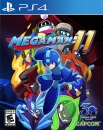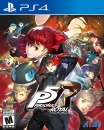It's a combination of things...
1. Nintendo generally doesn't release sequels for most of its franchises. Particularly the kind of titles where one is likely to make the previous entry irrelevant.
Smash is an example of this. Ultimate makes Smash 4 basically entirely redundant, and would make it a tough sell at full price. So, they're not releasing a sequel. Same with Mario Kart, or Animal Crossing. There are exceptions, such as BOTW2 or Galaxy 2 for Wii, but these are generally experiences where one does not make the other obsolete. Pokemon is really the exception to this rule.
2. They make good games.
Not that other companies don't, but Nintendo makes really good games, and those are the ones that continue to sell at a higher price.
3. They have a big variety of IPS.
This ties into #1. Compared to a company like, Activision, Nintendo has a lot of wells to draw from. Lets say they released Mario Kart 9 right now. It would sell through the roof, but it would also cut at least 5 million off Mario Kart 8 DX's sales, and potentially force a price drop. So, even if they would sell 20-25 million copies, they're kind of only selling 15-20.
Instead, they could release something like a new 2D Mario title. That would cut some sales from NSMBU Switch (and Mario Maker 2 to a lesser extend), but that's not selling at the same level of Kart. By cycling through franchises, they keep older entries from becoming obsolete. Of course, there is a limit, as right now Nintendo is sort of running out of their heavy hitters to release on Switch.
By comparison, Activision's line up is a bit thinner. If they released COD once a year, that entry would probably sell for a while at full price, but they'd have nothing to fill the gap.
4. Nintendo's games are not as story driven.
That's not necessarily a good thing, but in this case I think it helps. With TLOU2 for example, you're not going to get the full experience unless you've played the first. So, Sony is going to really want to get everyone possible to play that one, so they can get on board with the second. Part of that is reducing the price of the first.
5. Nintendo has trained their market.
A lot of it is simply expectation. The same way Apple has gotten its customers used to upgrading, Nintendo has gotten its core base to accept its model. If other companies tried to do the same thing at this point, their fans may be more upset cause it's not what they're used to. But this is just kind of what Nintendo does and right or wrong, we've grown accustomed to it.
Personally, I was willing to buy something like Xenoblade Chronicles DE at launch, even though it's something I wasn't really dying to play, because it probably wasn't going down by more than 20 bucks within a year. On the contrary. I wanted Devil May Cry 5 about as much, but I knew if I waited a while I could get it for 20 bucks, and so that's what I did.
































































